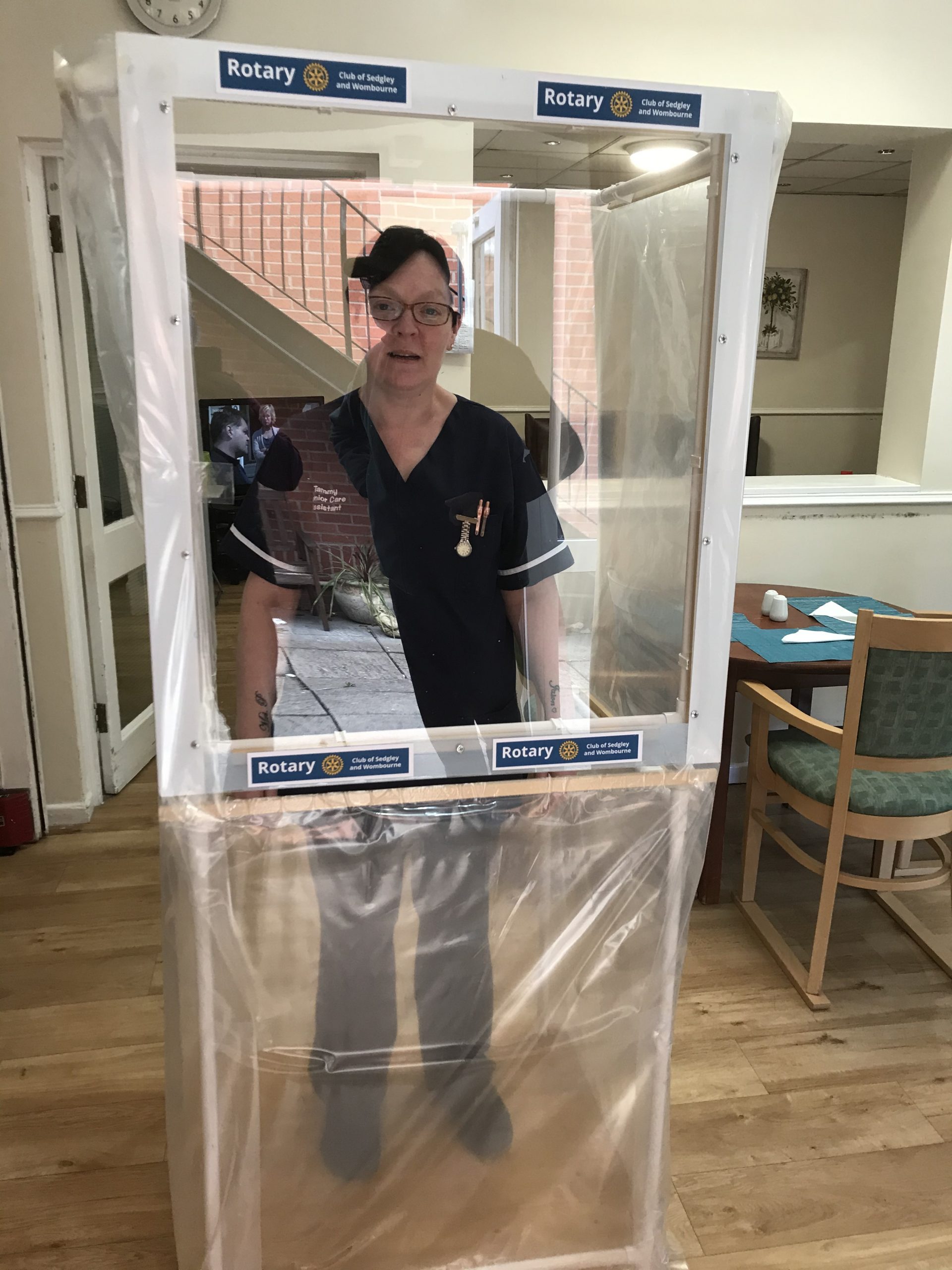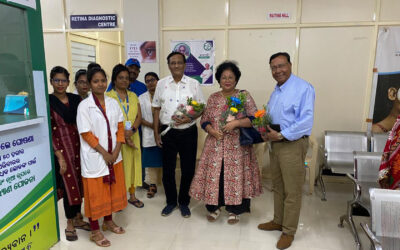The latest Government lockdown is restricting movement, particularly visits to care homes.
However, prior to the latest Covid clampdown, Dr Qurashi, who is a member of the Rotary Sedgley & Wombourne, has struck on an ingenious idea to enable people to visit relatives in care homes.
Dr Qurashi works as a surgeon at the Russells Hall Hospital in Dudley.


So he set about designing a portable isolating cubicle which could be used in care homes to allow visits.
The cubicle could be placed in a suitable position within a care home, allowing a resident or visitor to stand inside, in a COVID-19 secure manner, to safely chat.
Sedgley & Wombourne Rotary saw the potential of this idea since it could be usefully employed in smaller care homes.
Fellow Rotarian, Tony Brown, who is a DIY enthusiast, was tasked with developing the idea and building the cubicles.
These cubicles are made of a tubular construction with a fixed Perspex front window which can be easily wiped down. In addition, they have polythene side curtains with a solid, lift-out wooden base to provide extra rigidity.
Dr Qurashi, who is a member of the Rotary Sedgley & Wombourne, has struck on an ingenious idea to enable people to visit relatives in care homes.”
Prior to the recent lockdown, cubicles were supplied to four care homes in the Dudley area, totally free of charge, with a further two deliveries pending.
“While the vaccine is now becoming available, our guess is that it’s going to be a while before some of the smaller care home residents will be able to safely see their relatives,” said Tony.
Dr Qurashi has been working for a number of years, and at his own expense using annual leave, with amputees in both Pakistan and India.
There, he has been developing methods of artificial limb replacement utilising plastic water pipes and 3D-printed prosthetics to produce replacement hands and feet.










